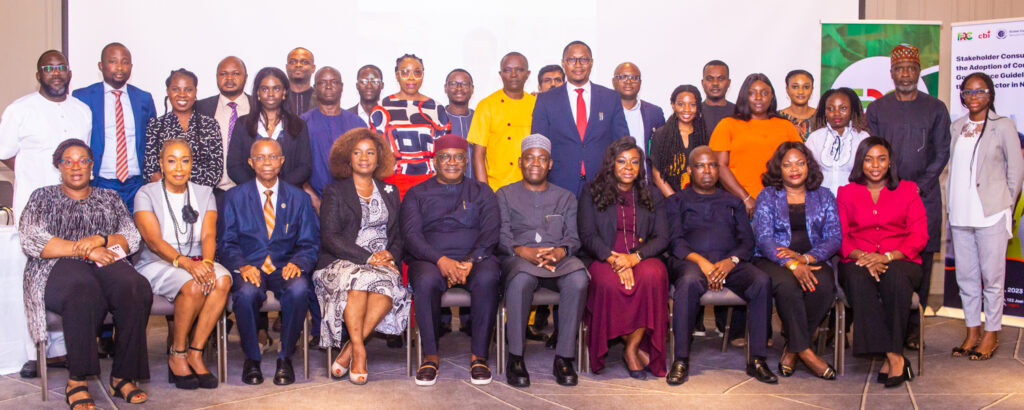
Ikeja, Lagos, Nigeria, 20 July, 2023 — The Integrity Organisation (IO) in partnership with the Financial Reporting Council (FRC) and the United Nations Global Compact Network Nigeria (UNGC-NN) hosted a Stakeholder Consultation on the Draft Exposure Document on Small and Medium Enterprise’s Corporate Governance Guidelines (SME-CGG) for MSMEs in Nigeria. The consultation marked another step in the “SME Future-Forward Project,” funded by the MacArthur Foundation, aimed at improving corporate governance, ethics, and sustainability of Micro, Small and Medium Enterprises (MSMEs), which constitute 96% of businesses in business in Nigeria.
The one-day event brought together various stakeholders, including representatives from the private sector, business membership organisations (BMOs), and government regulatory agencies, to discuss the purpose of the Guidelines, receive feedback and recommendations on the draft document, and plan a way forward on institutionalizing corporate governance best practices in SME entities.

Ms. Naomi Nwokolo, Executive Director, UN Global Compact Network Nigeria, who delivered a welcome address, highlighted the objective of the stakeholder consultation meeting. She remarked that “the objective is to improve Nigeria’s business environment, ensure the longevity and sustainability of MSMEs, and boost business confidence, access to capital, and trade opportunities for compliant entities.” Recognising the critical role of SMEs in the economy as they constitute 96% of the Nigerian marketplace and account for 84% of national employment, Ms. Nwokolo emphasised the need to align corporate governance practices with international standards to enhance competitiveness, attract investment, and contribute to the achievement of the Sustainable Development Goals.
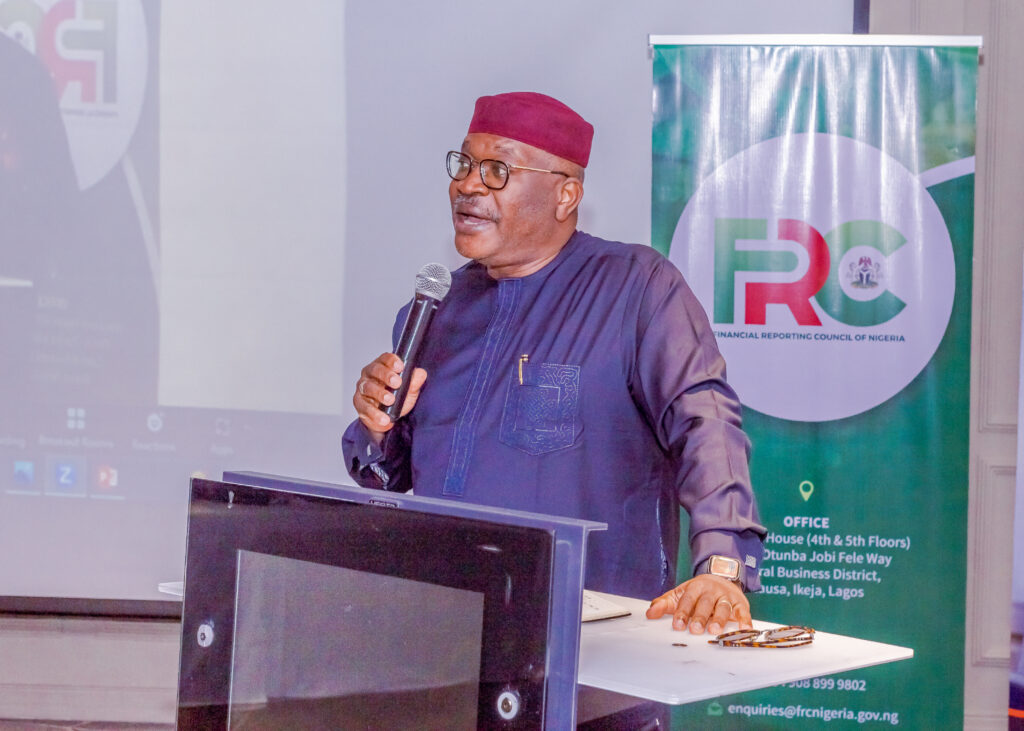
Mr. Soji Apampa, Executive Director, Integrity Organisation, provided an overview of the SME Future-Forward Project. Citing a 2016 OECD study, Mr. Apampa shared that most corruption is facilitated through intermediaries (including professionals who work at small and medium enterprises) and between actors along all stages of the value and supply chains. He remarked that presently the Nigerian public value “survival” over “integrity.” He stated that developing the Guidelines was a critical milestone in addressing these issues and fostering cultural change towards corrupt behaviour. However, he stated that to drive sustainable change, Regulators such as the FRC to create systems that would help monitor compliance to measure the initiative’s success and incentivise behaviour modification among the public.
Ambassador Shuaibu Adamu Ahmed, Executive Secretary, Financial Reporting Council of Nigeria (FRC), in his keynote address commended the drafted Small and Medium Enterprise Corporate Governance Guidelines 2023, expounding upon how they fit into the broader mandate of the FRC to promote good corporate governance across sectors in Nigeria’s economy. Ambassador Ahmed acknowledged the efforts made by the Financial Reporting Council (FRC) to enhance public awareness of corporate values and ethical practices within various entities. He highlighted the Council’s decade-long journey in developing Codes of Corporate Governance for the public, private, and non-profit sectors, which culminated in the issuance of the 2018 Code of Corporate Governance. Ambassador Ahmed stressed the importance for technical sessions, support, consultations, and exposure drafts to ensure widespread stakeholder acceptance and successful adoption of the newly issued Guidelines.
Ambassador Ahmed further acknowledged the vital role of Micro, Small, and Medium Enterprises (MSMEs) as crucial agents of economic prosperity for Nigeria. He emphasized their significant contribution to employment, GDP, and the nation’s global competitiveness. Recognizing the pivotal role they play in the economy, Ambassador Ahmed stressed the need to provide a robust corporate governance framework specifically designed to support the growth, financing, and overall performance of MSMEs. He reiterated that the successful implementation of such a framework through the SME-CGG 2023 would have a profound impact on the “investability” of MSMEs. This, in turn, would foster increased access to capital, efficient talent management, better market fit, and create more opportunities for job creation, ultimately driving economic growth and development in the country. The Executive Secretary emphasized that the SME-CGG 2023 Guidelines are intended as valuable recommendations and benchmarks for entities at various stages of development. He emphasized that the adoption of good corporate governance practices is a gradual and evolving process and would require the collective effort and engagement of all stakeholders.
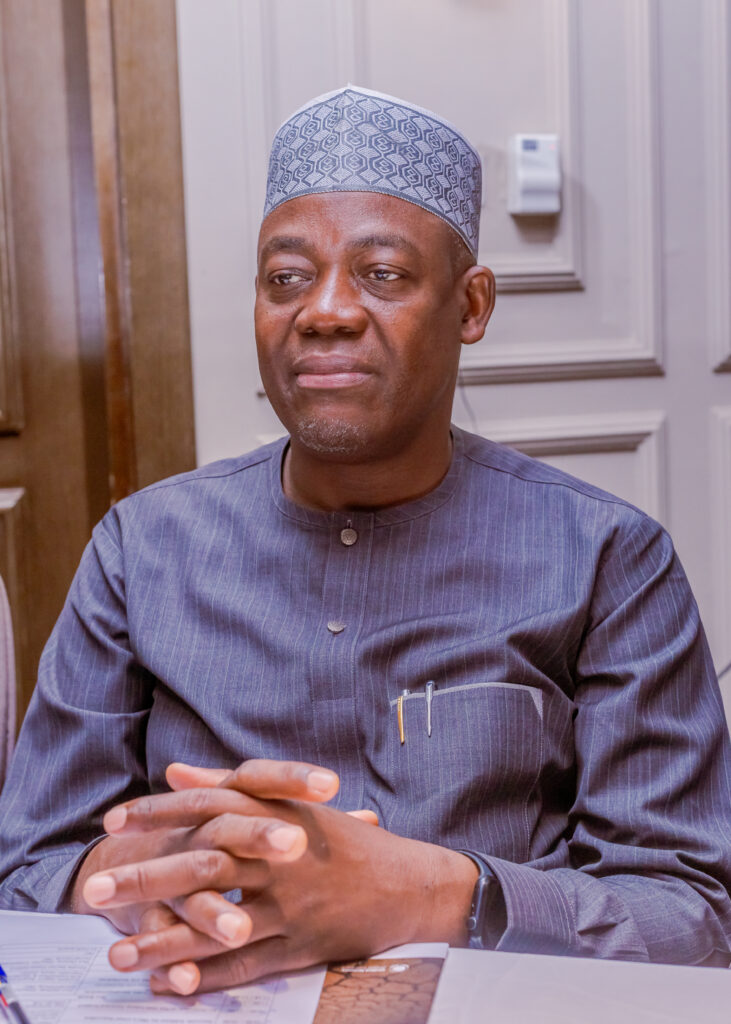
In light of this, the Executive Secretary extended a hand of partnership to SMEs and the broader private sector. He encouraged them to collaborate through collective action, working together to promote and enhance the business environment in Nigeria. This collaborative approach, he emphasized, would drive positive changes, and further improve corporate governance practices, ultimately leading to a more robust and sustainable business landscape for all.
Reprising the Executive Secretary’s theme, Mr. Titus Osawe, FRC’s Director of Corporate Governance, highlighted the challenges encountered in previous attempts to develop and issue Codes of Corporate Governance for enhancing good corporate practices in the public, private, and non-profit sectors. He acknowledged that limited stakeholder engagement and inadequate exposure periods resulted in the lack of acceptance by stakeholders. To avoid repeating past mistakes, Mr. Osawe emphasized the extensive outreach undertaken during the development of SME-CGG. This outreach encompassed multiple approaches, including in-person consultations, gathering feedback from Business Membership Organizations across different geopolitical zones, and ensuring online accessibility for public comments by publishing the SME-CGG on the Council’s website. Mr. Osawe described the structure of the Guidelines, which consisted of seven sections, eleven principles, and 35 best practices, as “digestible” and tailored to meet the diverse needs and capacities of SMEs to ensure sustainability and enhance its practicality for businesses of varying sizes.
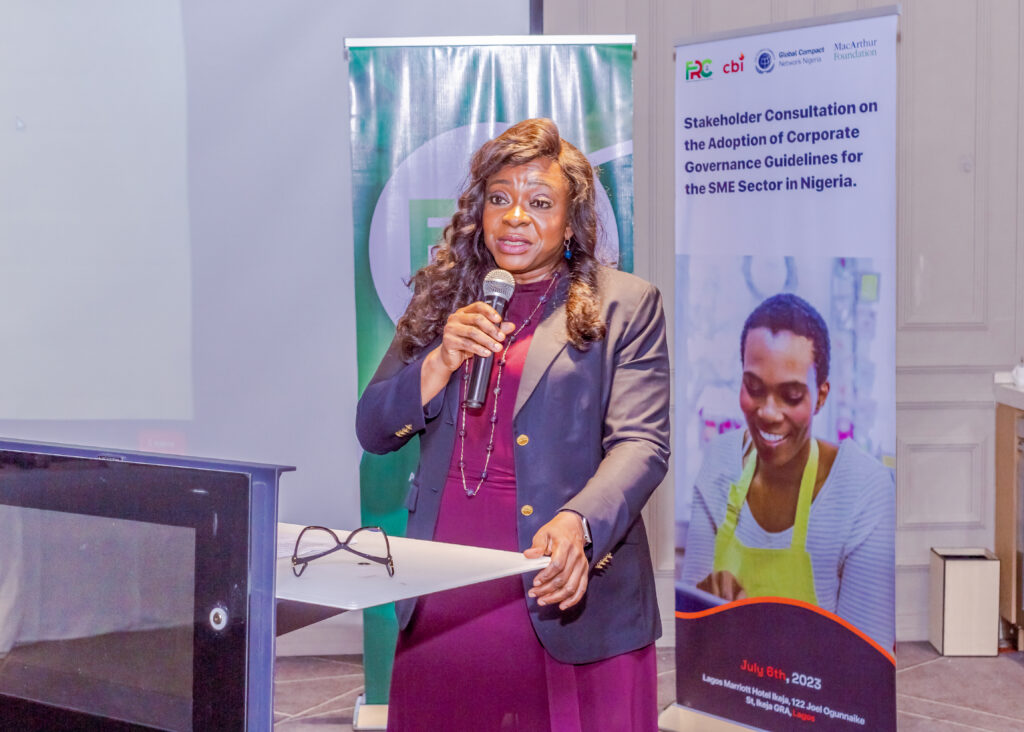
Ms. Ayotola Jagun, Board Member and Anti-Corruption & Governance Thematic Lead at UN Global Compact Network Nigeria, presented a brief on the “Pilot Phase” of the SME-CGG: Deployment in Action, calling the Guideline’s implementation a journey and a process. The strength of the Guidelines, she highlighted, is its incentives-based approach to encourage behaviour change rather than mandate nominal compliance. She stated, “The focus is not on increasing the administrative burden. Instead, it is to help companies become more sustainable.” The standardization the Guidelines create, she posited, will enable investors and decision makers to identify those SMEs who are on the right Governance and Sustainability trajectory. In addition, the commitment by large corporates to use adoption of the Guidelines by SMEs as a procurement passport in engaging suppliers will help serve as a catalyst for its widespread adoption.
At the conclusion of keynote addresses, Mr. Emmanuel Bosah, Integrity Organisation Programme Director, opened and moderated a discussion session. The session highlighted key takeaways, including the importance of using accessible language in the Guidelines and ensuring inclusive stakeholder engagement. There was also a consensus on the need for a clear segmentation of the stakeholders to whom the SME-CGG 2023 applies. Additionally, participants stressed the significance of establishing a support system and platform for monitoring compliance with the SME-CGG, while also encouraging a risk-based framework for SMEs adopting the Guidelines.
At the conclusion of the discussion session, Mr. Osawe shared the next steps in the consultation process on the SME-CGG. He stated that the project organisers would continue to gather feedback from business membership organisations and other institutions, such as the various Chambers of Commerce, to capture the perspectives of different constituencies within the business community. To facilitate this, participants were encouraged to submit their documented recommendations via email to cmosondu@frcnigeria.gov.ng and ieekpo@frcnigeria.gov.ng. These recommendations would be considered and incorporated into the final adopted version of the SME-CGG 2023.
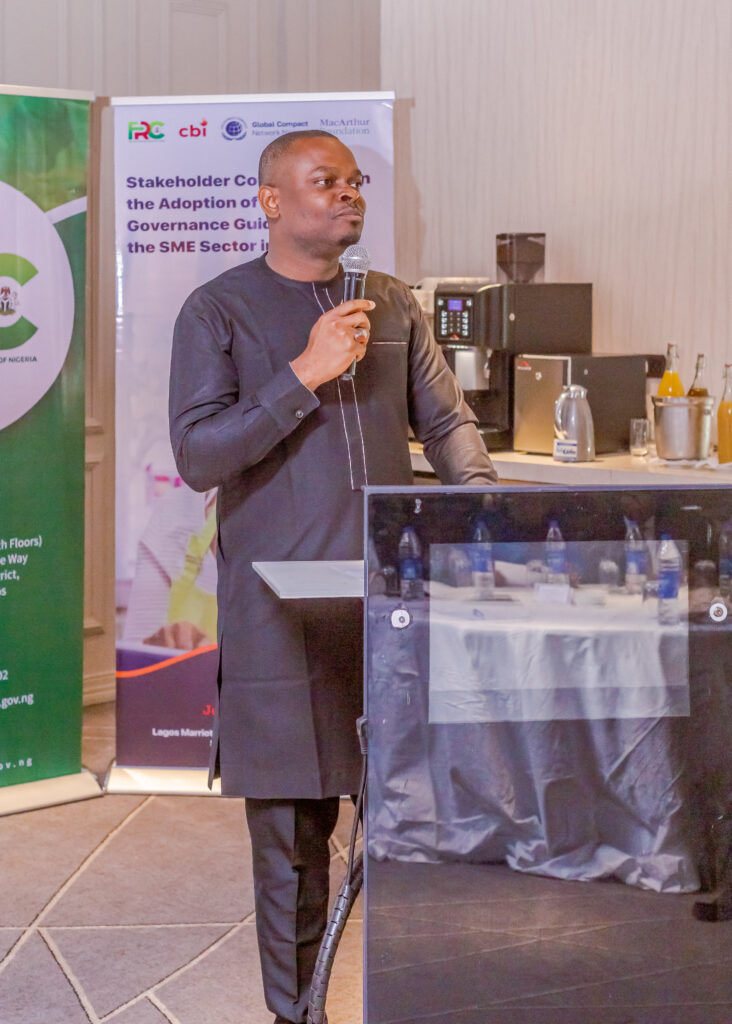
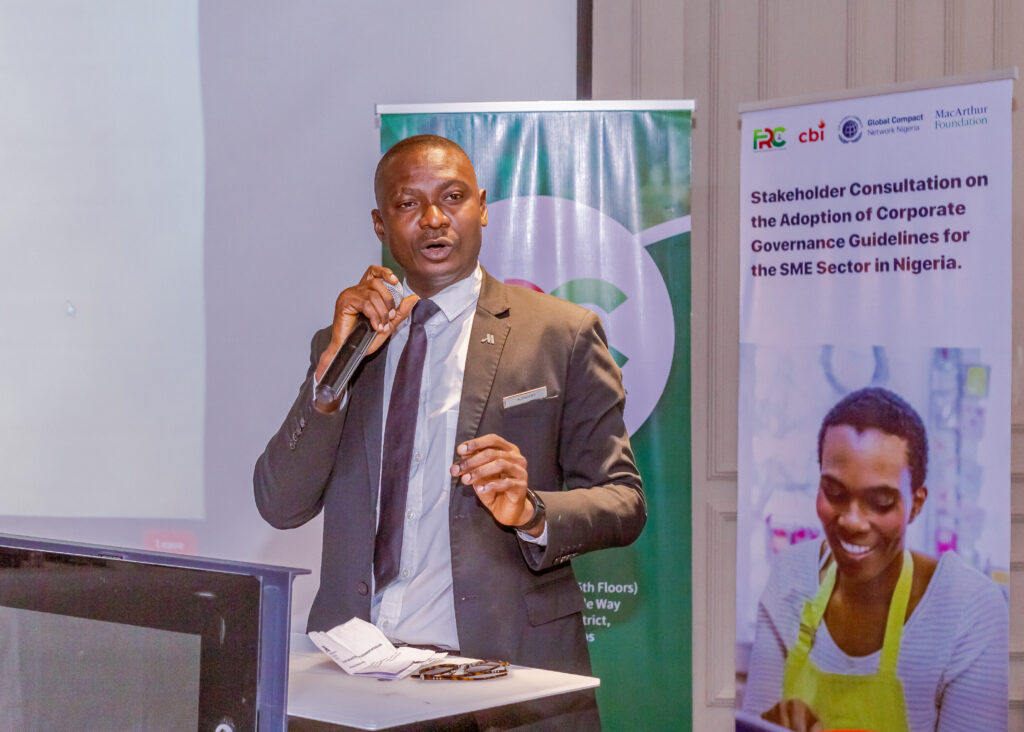

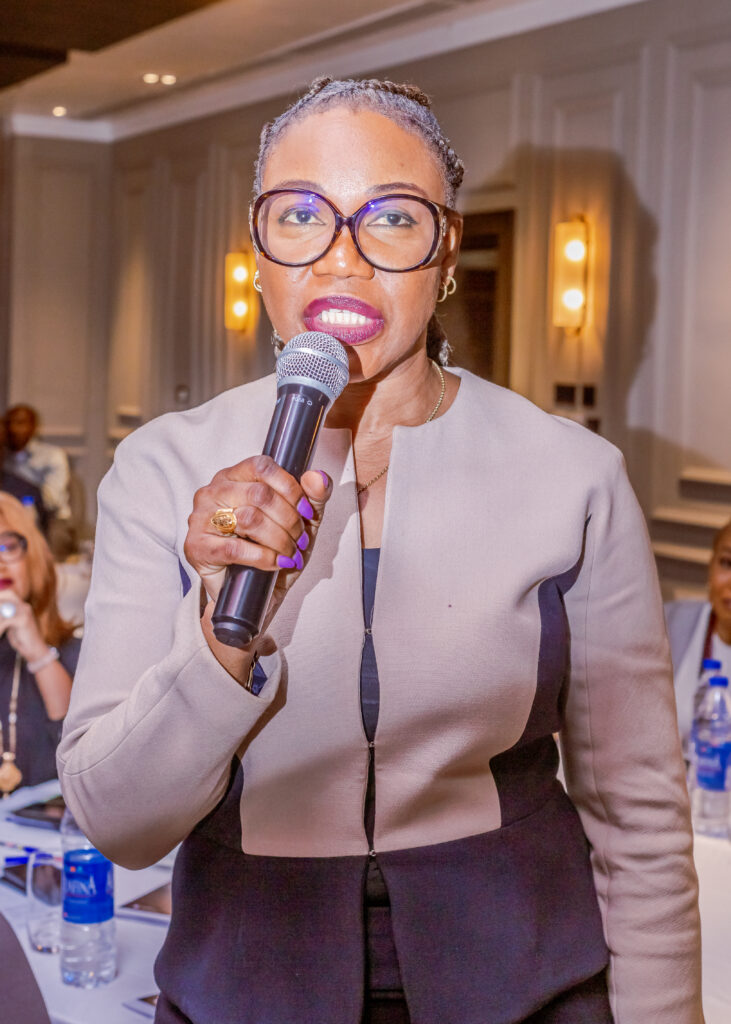
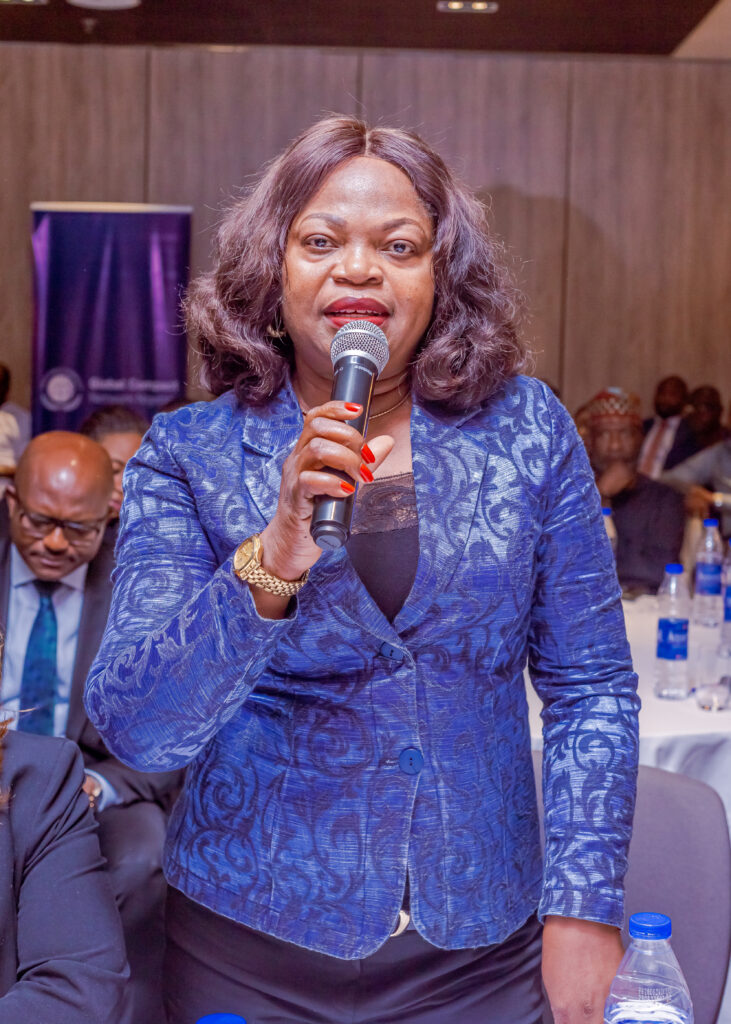
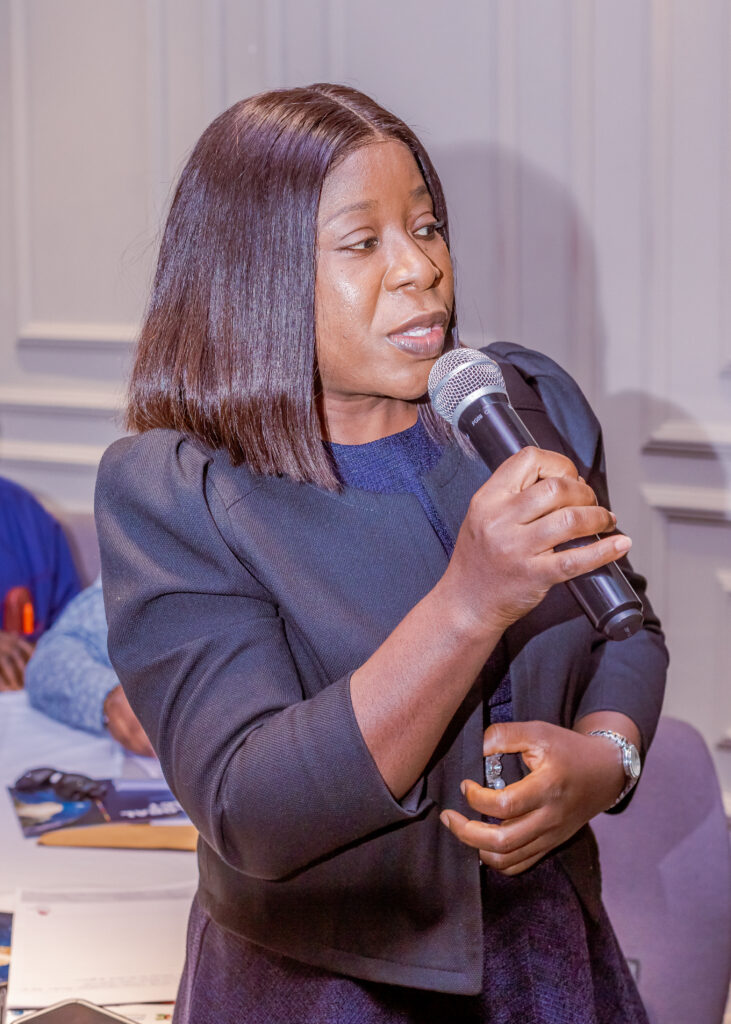
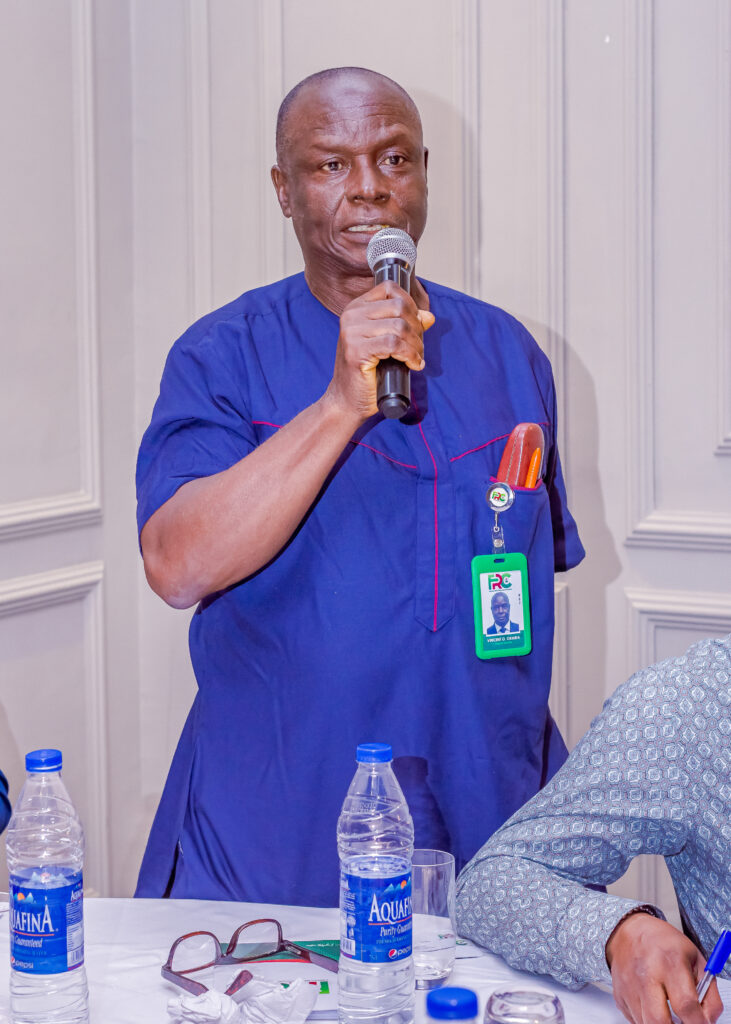
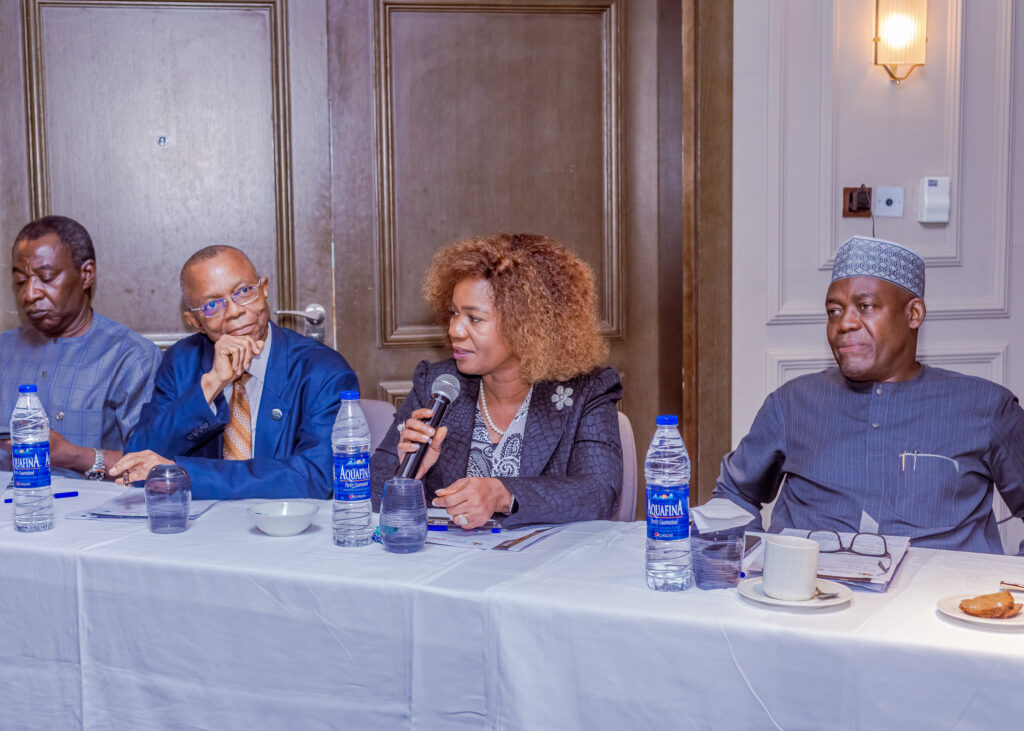
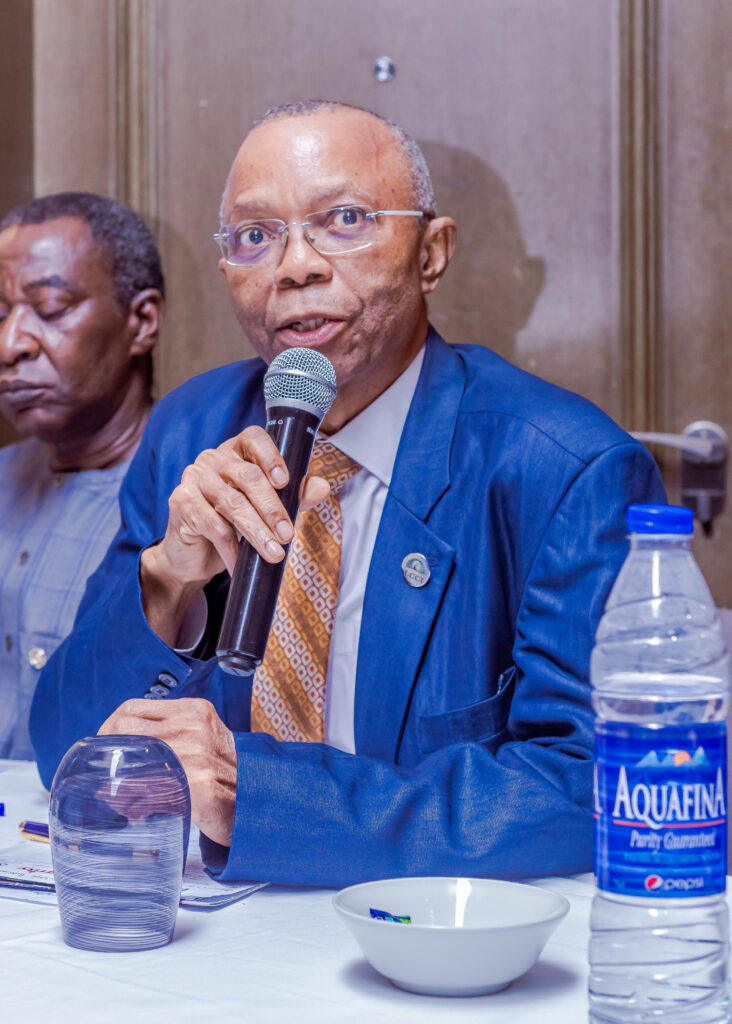
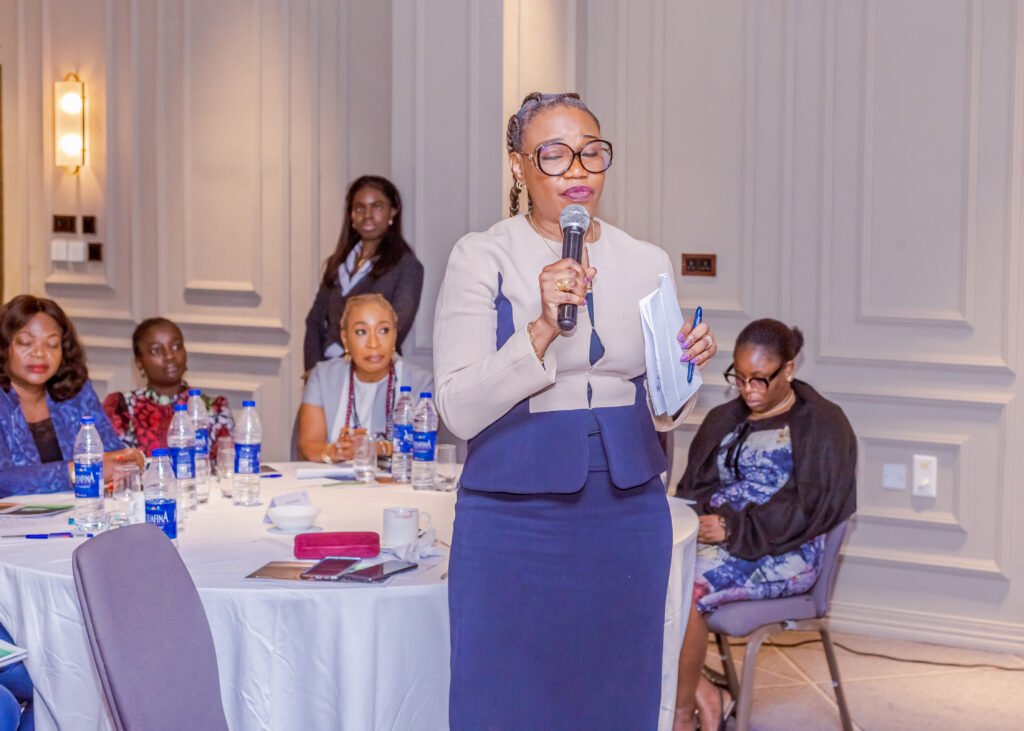
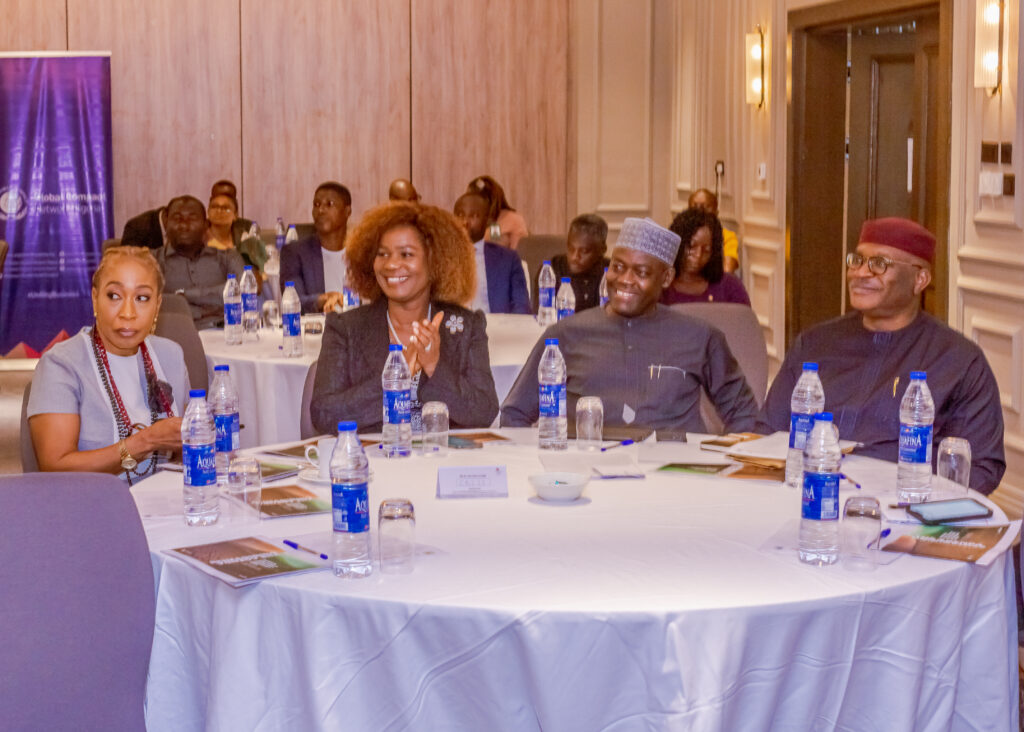
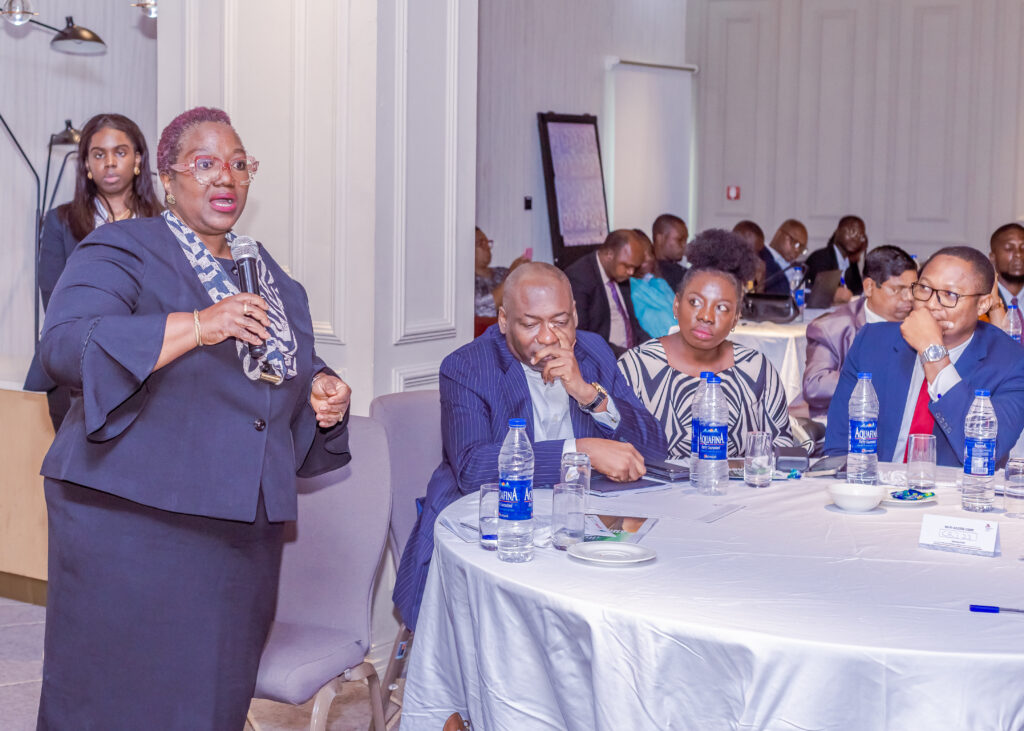
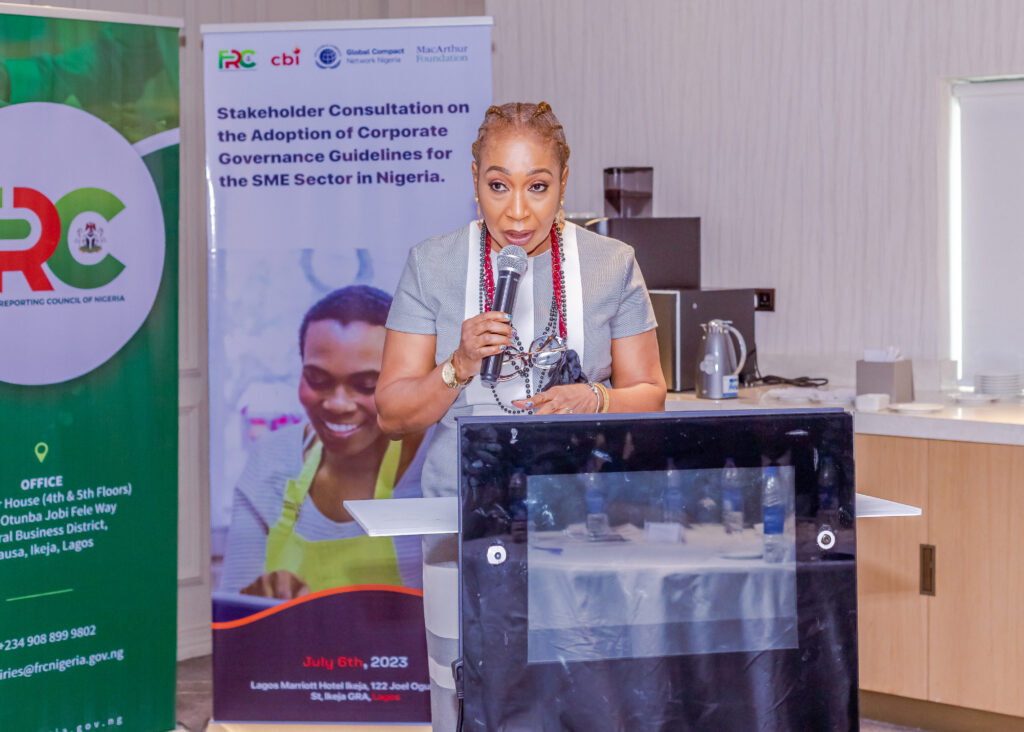
Lastly, Finally, Mrs. Ezinwanne Nnoruka, FRC Board Secretary and General Counsel, offered a vote of thanks. She thanked all the participants for their presence and active engagement in the session, acknowledged the valuable contributions of stakeholders and partners, the IO and UNGC-NN, and extended a heartfelt appreciation to the MacArthur Foundation for their unwavering support.
